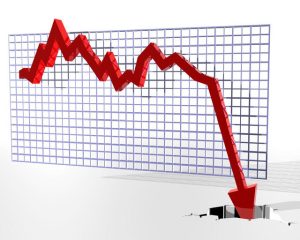Thanks to the power of the internet and youtube, virtually anything post-1990 can be found in some capacity within the ether. And for those who did just a small amount of digging, they know that the last two Federal Reserve Chairman admitted they were clueless regarding the housing bubble and stock markets crashes of 2007 and 08.
Yet one regional Fed President did forecast the collapse, but was regularly ignored by his peers. And now with Richard Fisher out of the halls of central bank power, he is once again warning of a crash, and said two weeks ago at the Strategic Investment Conference that he is not the only one believing that it is coming.
Excerpts and comments by former Fed President Fisher:
-
Government Debt: he is worried about the $19 trillion US government debt (up $11 trillion since 2008) because the Fed has fired all its monetary bullets and can’t expand the balance sheet any further.
-
China and social instability: he thinks communist leaders care about production but not efficiency. “They might produce more, but our products work,” jokes Fisher. There are entire cities in China with nobody living in them, according to him. Fisher says the biggest problem in China is social stability. “I’m deeply worried about their ability to maintain social stability,” but… “It doesn’t affect us directly.” Another risk in China is that millions of people are pulling their money out of the country.
-
Low interest rates don’t work: “We had a long period of moderation and low interet rares, which did nothing to adjust.” The online countries that adjusted were Poland and Mexico, according to Fisher.
-
The failed Brazilian experiment: Fisher said Brazil is a symbol of what’s wrong with emerging markets. They lived through the crisis but learned nothing from it.“Brazil has always been a country with potential, and it’s never been realized.”
-
Raising rates is long overdue: he made the point that raising interest rates won’t ruin the economy. “The debt rollover is what we should be worried about. Yet nobody is talking about it.”
-
It’s all one big Ponzi scheme: “Our government has to borrow money just to pay interest.” Or as Minsky would say, this is the Ponzi finance stage, just before everything goes to hell. “We have a lot of unsound policy in place. It is agreeable, but in my view, it is unsound.”
-
The death of the middle class: Fisher says the lowest income quartile has seen an increase in income. The highest quartile has also seen a massive increase in income. The two middle quartiles were flat over a period of many years. “This is why we have such support for people like Donald Trump and Bernie Sanders.”
-
A ritalin monetary policy: “We have what I call a Ritalin based monetary policy.” Now Janet Yellen’s job is to wean it. “It has to do with taking the distortions out of the financial markets and letting the markets down easier.” “These are the lowest interest rates in 239 years of history.”
But as Sagami points out, Fisher’s most telling comment came during the Q&A session when he was asked how his personal portfolio was positioned. Fisher’s response: “In the fetal position.” Moreover, he also said that “all my very rich friends are hoarding cash.”
Not some, not many. All. - Zerohedge
Of course it is difficult to try to determine who these ‘rich friends’ are, but in recent weeks, several billionaire money managers like George Soros, Stanley Druckenmiller, Carl Icahn, and the Bond King Bill Gross all have publicly warned of a coming financial crisis, with every single one making speculative bets against the markets and the Fed.
Since the middle of last year, economists in the alternative media have pointed towards a crisis point that began with the market top back in July, and is expected to boil over through 2017. And with gold being the best performing asset anywhere in the markets since January of this year, someone, somewhere knows something is coming, and are putting their money where their beliefs are.
Kenneth Schortgen Jr is a writer for Secretsofthefed.com, Examiner.com,Roguemoney.net, and To the Death Media, and hosts the popular web blog, The Daily Economist. Ken can also be heard Wednesday afternoons giving an weekly economic report on the Angel Clark radio show.
Don't miss these
- Non Gamstop Casinos UK
- Best Casino Not On Gamstop
- Siti Sicuri Non Aams
- Casinos Not On Gamstop
- Casino Not On Gamstop
- Casino Online Stranieri Non Aams
- Non Gamstop Casino
- Sites Not On Gamstop
- Non Gamstop Casino UK
- Slots Not On Gamstop
- Casino En Ligne
- Casino En Ligne
- Casino En Ligne France
- 信用 できるオンラインカジノ
- UK Casino Not On Gamstop
- Casinos Not On Gamstop
- Casino Online Non Aams
- I Migliori Casino Non Aams
- Siti Casino Online Non Aams
- Non Gamstop Casino Sites UK
- Casino En Ligne Fiable
- Best Non Gamstop Casinos
- Non Gamstop Casino
- Betting Sites UK
- Casino Non Aams
- Crypto Casino
- Meilleur Casino En Ligne Français
- Casinos Belgique
- Casino Online
- Paris Sportif Ufc
- オンラインカジノ 出金早い
- KYC 없는 카지노
- казино онлайн
- Migliori Siti Scommesse
- Casino Online
- Casino En Ligne Fiable
- Casino En Ligne 2026
- Nouveau Casino En Ligne France
- Casino En Ligne
